So you’ve seen the movie and now you know with absolute certainty where Napoleon went wrong. You can, and will, do better. It’s time to get into real wargaming. Welcome to Napoleonics.
This article is part of our Getting Started: Napoleonics guide.

The best way to go into more detail on Napoleonics – and find out what Scott took some serious creative liberties with – is to pick up a book! It’s said that more biographies have been written about Napoleon than anyone other than Jesus – I’ve no idea how anyone arrived at that, but given that I’ve now got a whole shelf of Napoleon biographies and only two about Jesus, I’m willing to believe it. There’s a massive range of Napoleonic fiction and non-fiction, and you can read about every single element of the period in exhaustive and, indeed, exhausting, levels of detail. It’s impossible to give a recommend to every good book about Napoleon, so here’s a solid set of easy-to-pick-up books to get you going – very much my favourites and by no means an unbiased list! We’re going to break this up a bit into Fiction, Non-Fiction, Napoleon, Everyone Else, and listening recommendations, giving you a solid place to start, or new favourites to pick up.
Napoleon
Let’s start with the man himself. Napoleon is one of the very few people I’ve ever read more than one biography of, and at this point I could give you the “best” biography in any number of different styles, amount of volumes, levels of accessibility, most stylish covers, etc etc etc.
Napoleon the Great, Andrew Roberts
Andrew Roberts’ Napoleon the Great has to be the first recommendation of the lot. If you want a single volume biography of Napoleon though, this is the one – not as long as some of the multi-part epics, but still satisfyingly weighty and an accessible read. Roberts writes Napoleon shorn of some of the melodrama that movies and more popular biographies give him, leaving a fantastic portrait of the man, the politician and the general. If you’re going to read one book on Napoleon (if you like this you’ll read more than one) and want to feel like at least a bit of an expert, it’s this one.
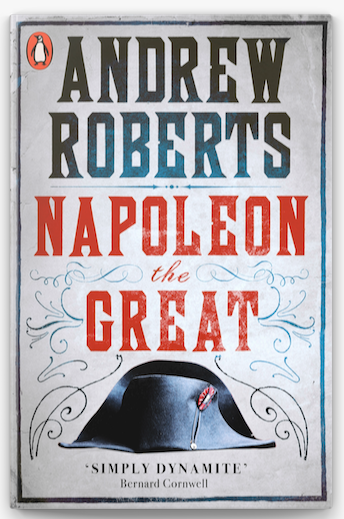
It’s a fairly even handed take on Napoleon that straddles a fine line between “Napoleon the Great (sarcastic connotation)” and “Napoleon the Great (bonapartist connotation)”. There’s things in there I believe he gets wrong – mainly about Josephine and Toussaint L’Ouverture, but for a general political and military history that goes into appropriate depth when you need it, you won’t do better.
If you think “there’s no way a single volume, much like a single movie, could do justice to Napoleon’s life” well, you’re kind of right. Roberts gives it a good go, but if you want more detail, Philip Dwyer’s three-volume biography of Napoleon is excellent – consider it an upgrade from Napoleon the Great.
Napoleon and His Marshals, AG McDonnel
So if Napoleon the Great was taking Napoleon as a man, Napoleon and His Marshals takes him as a boys-own-adventure hero. It’s a strangely thrilling, touching, melancholy and stirring book about the little Hero Napoleon and his cast of Best-Friends-and-Enemies that focuses in on the military exploits of the French Empire. You won’t find detailed discussion of the rift with the Catholic Church here, but you’ll have pithy lines aplenty, cavalry charges, heroism, tragic deaths and the perfidity of Albion.
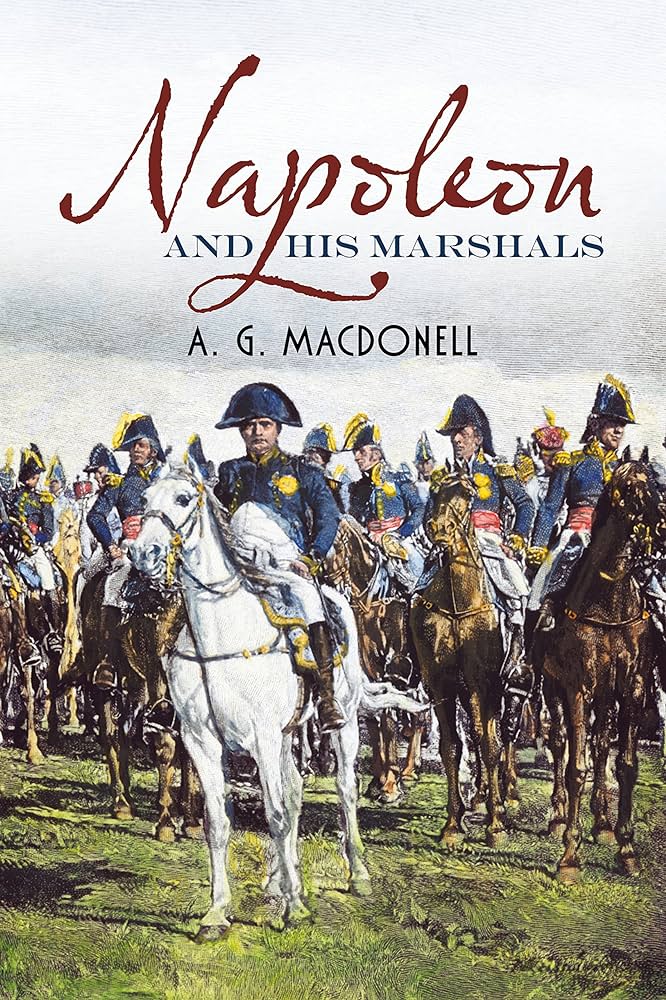
Napoleon and His Marshals was written as a book for kids/teens and it shows, but diving headlong into the romance and adventure works and it never outstays its welcome or feels like anything other than the best kind of adventure story. As a book that gives you a reason to hit the tabletop and duke it out with the Austrians, Russians and Prussians, it has no equal.
The Napoleonic Wars
Out of the innumerable introductions to the general sweep of the Napoleonic wars comes recommends going from broadest to niche-est.
The Napoleonic Wars 1803-1815, David Gates
The Grandest Survey of the wars Napoleon was in charge for, The Napoleonic Wars does exactly what it says on the tin, and more. It’s a chronological look at the period from the final breakdown of the fragile British/French peace up to and beyond Waterloo. Keeping it to the military and political gives us more wargaming inclined readers a solid hook – every chapter could be a fantastic tabletop campaign – and Gates dives into battles in great detail.
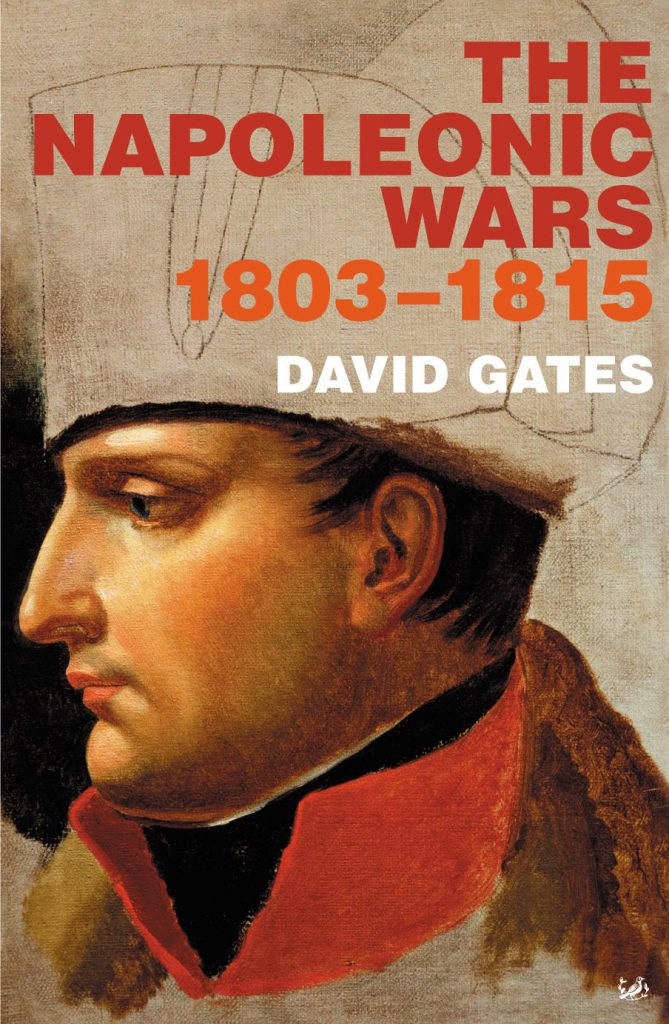
There are some issues with it – use wikipedia to get better maps of major battles, for example – but overall it’s a very handy primer on the period. It’s well written enough that you’ll hammer through it once you get into it, and it’s relatively unbiased – a bloody rare thing in Napoleonics! You’ll end up wanting more detail on specific events while getting a solid overview, and that’s exactly what you want when approaching a topic as big and as rabbit-holey as wargaming Napoleonics.
War of Wars, Robert Harvey
It feels a bit strange to say one of the best discussions of the Napoleonic wars as a whole is an incredibly detailed look at British political, economic, and military shenanigans, but it’s important to remember that while Napoleon’s France takes a lot of the attention, there was one enemy behind (nearly) every war: Britain. Britain was the eternal antagonist of Napoleon, delivering three of the four decisive defeats (Trafalgar, The Peninsula, Waterloo) that first shook and then killed the Empire.
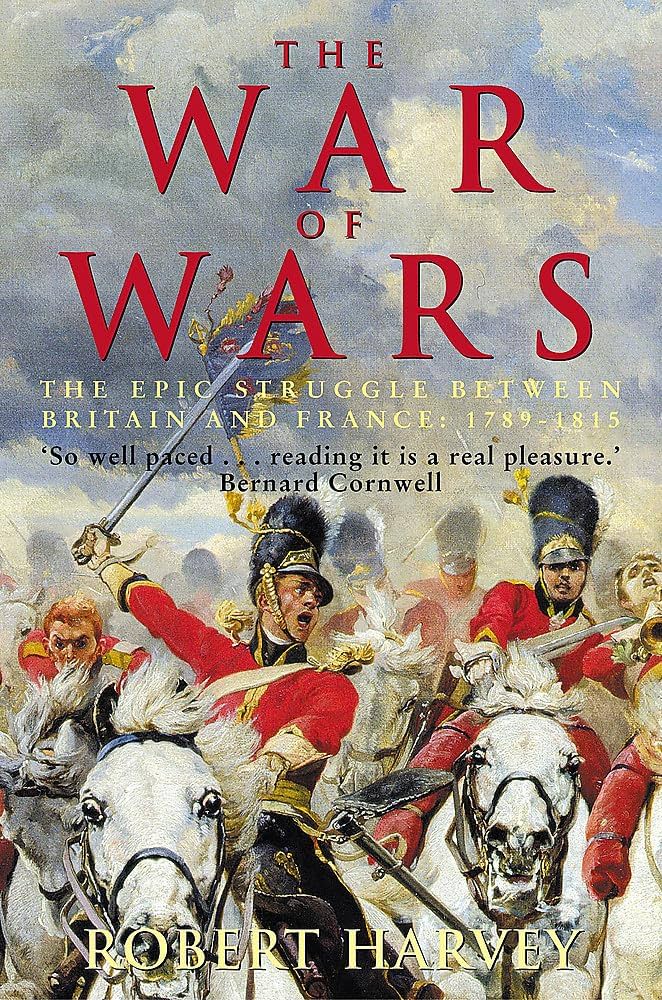
Harvey takes us through Britain as the opposition, and, by virtue of the Brits being involved at least financially in every single action taken to oppose the Republic and the Empire, gives a fantastic political and military summary of the Napoleonic Wars. It’s relentlessly detailed in every theatre and possible interaction between France and Britain, is sprinkled with Navy and Army information, compares Britain and France on every level and really sets the stage for what the Napoleonic wars unleashed – the incredibly cruel reign of the Pax Britannica. At 900-something pages, it’s not a light read, but it feels like it, with the pacing and character of a great epic novel.
Black Spartacus, Sudhir Hazareesingh
If there’s one thing I couldn’t read enough of during my first year of Napoleonics, it’s Haiti. The story of how ex-slaves not only rose up against the impossibly cruel regime of their masters, but then fought off the armies of France, Britain and Spain, is a tale of heroism, military prowess and fascinating sociopolitical circumstances unlike any other. Not the sideshow that western-focused military history has it, Haiti was fought over not just with the dedication of the freed slave, but with the rapacious greed of Empire – hundreds of thousands of European soldiers met their end in Haiti.
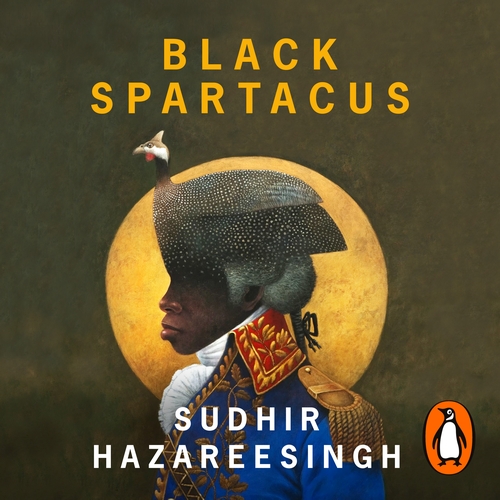
Black Spartacus is a history of the Revolution through the experiences of one man – Toussaint L’Ouverture, revolutionary leader, general and politician. It’s a fantastic, strong, enthralling, beautiful and important biography of Toussaint Louverture that is not just worth a read, it’s worth buying for people over and over again. As I’ve said before, you should probably just bloody buy it and read it, I’ll wait here until you’re done. Oh great, ok, you’re back, glad you took my advice.
Swords Around a Throne, John Elting
If you want to go from period-led history into the military nitty-gritty, Napoleonics has you covered. I’d be surprised if there was a European battle during the wars that doesn’t have multiple books dedicated to it, a single uniform that isn’t exhaustively described (often incorrectly). This is the era of the detail. It can be hard and inaccessible to dive in to the lengths people go to arrive at “accuracy” though, so start with readable detail. Start with Swords Around A Throne.
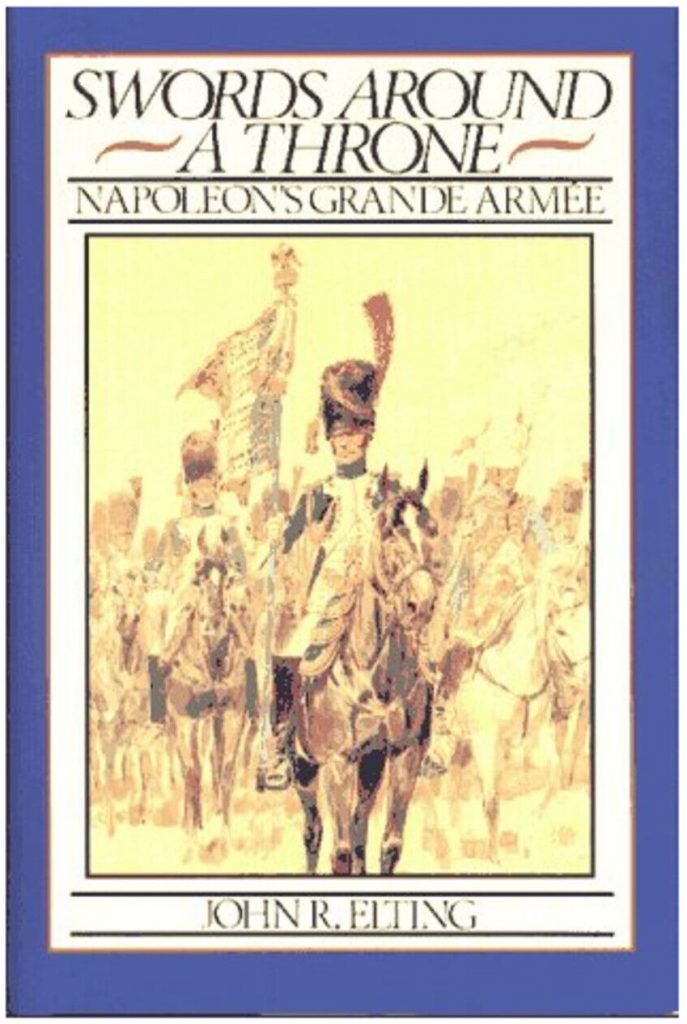
Swords is a general look at the French Army from revolution to Waterloo – an interesting read, full of anecdotes, stories and organisation, that represents the most accessible work on a single army that I’ve come across so far. It’s a common reference book in all but the groggiest of circles, and the Good Colonel has a well deserved reputation. He might not always be right, but he is always entertaining and if you’re thinking of a French force, you owe it to yourself to pick this up. Once you’re done with it, if you want to dive even deeper, pick up Anatomy of Glory by Henry Lachouque.
Fiction
Revolution Series, Simon Scarrow
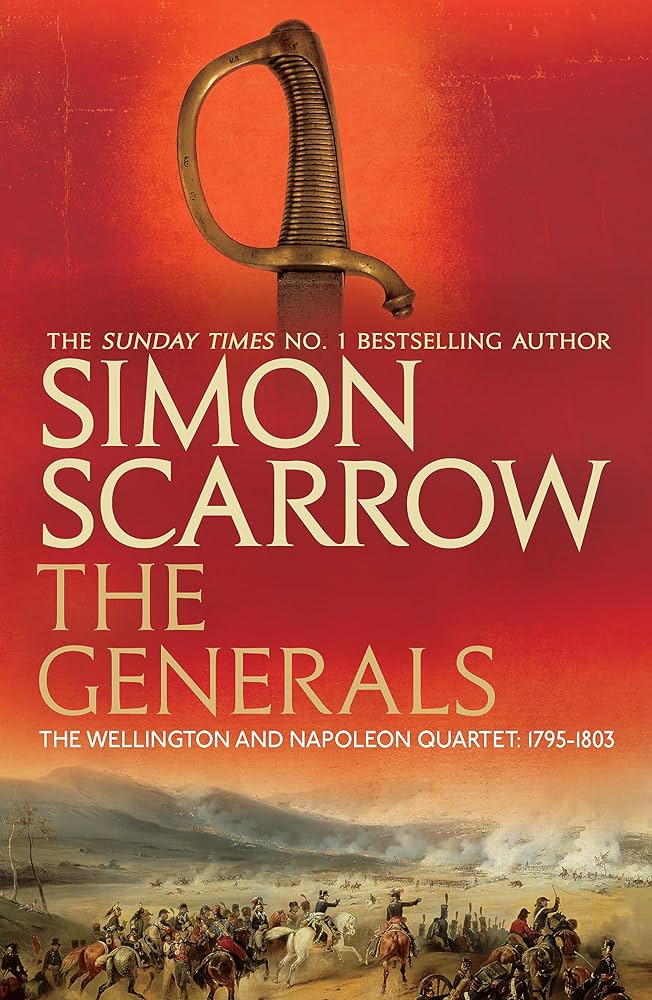
Napoleon! Wellington! Revolution! War! Triumph! Defeat! Scarrow’s Revolution series pairs up Wellington and Napoleon and follows them through their formative years up until their first and only clash on the field of Waterloo. Fictionalised biography is a lot of fun, with four volumes in the series with only incredibly slight diminishing returns. I read these on holiday, and that’s kind of what they are – good holiday reads. Nothing too heavy about any of them, and the best book – The Generals – I devoured in a day.
Sharpe Series, Bernard Cornwell
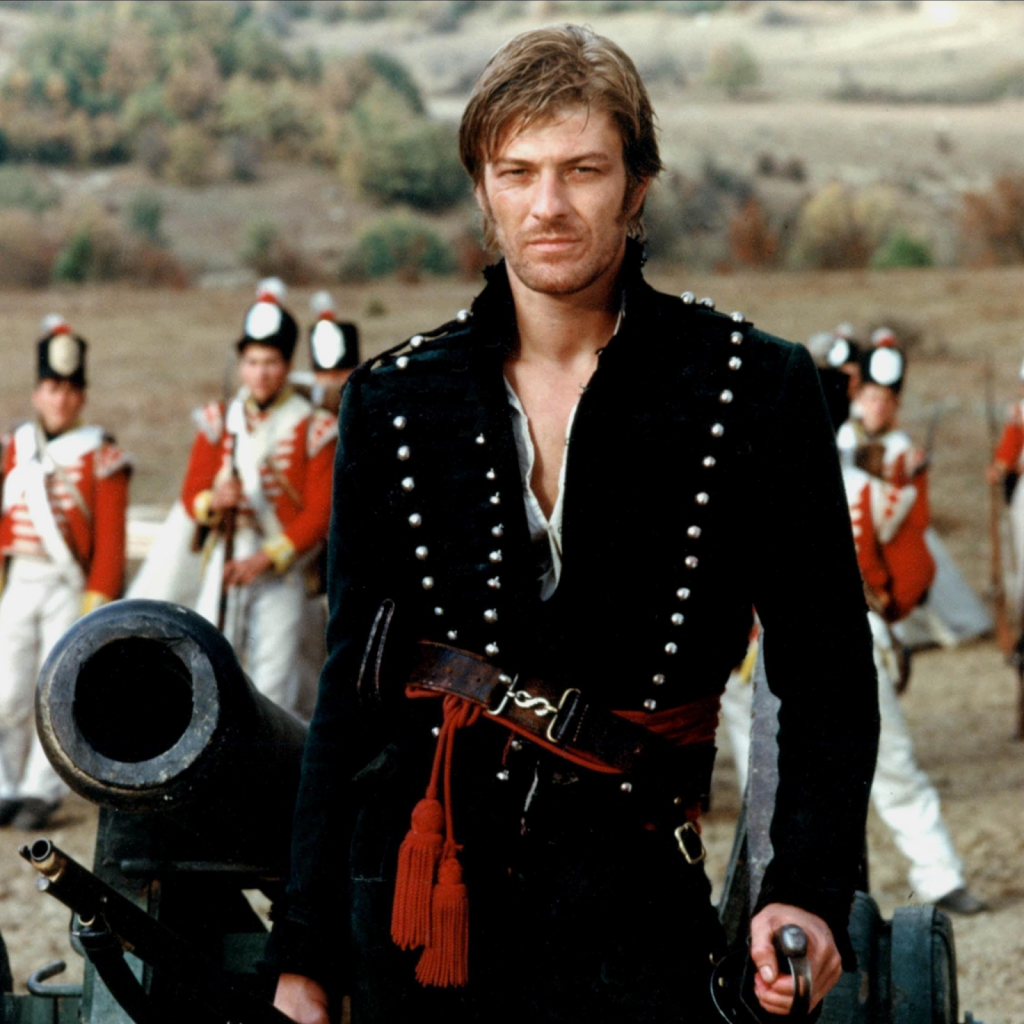
You’re here, you knew it was coming, and here it is. Sharpe. What can I say about the books that hasn’t already been said about the TV show on this very site? Sharpe is endless fun, ridiculous, serious, stirring and damn good adventure by turns, with Richard Sharpe acting as a spy, soldier, special forces operative and general womaniser in books that can’t yet be described as immortal but will probably last as a well known series until our species can no longer read. Of the 20 novels published (so far, you never know…), I couldn’t tell you what my favourite one was, but maybe Sharpe’s Rifles or Sharpe’s Eagle might be a good place to start. They’re all pretty similar, but you know what? Good. Go read some Sharpe. You won’t regret it.
If you get to the end of the list before Cornwell publishes another one, go old school with Arthur Conan Doyle’s Brigadier Gerard series and see kind-of-sharpe-in-france, or full naval with CS Forester’s Hornblower novels, which are pretty much perfect.
War and Peace, Leo Tolstoy
Yes, I am going to recommend you read War and Peace, because honestly, it’s great. Charting the fortunes of five families over the height of the Napoleonic Wars, we’re immersed into the politics and loves of the Russian Imperial Court. As Francophilia wanes and then burns to the ground along with most of Moscow, Napoleon himself looms large over the book, and we see Austerlitz, Borodino and the retreat from Moscow from the Russian perspective.
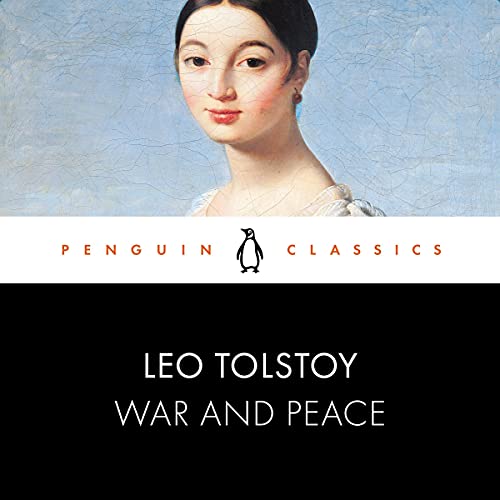
I should write more, really, shouldn’t I? But it’s War and Peace! You know it! If you haven’t read it already you’re probably thinking its a dense and annoying book, but it genuinely isn’t. If you can handle every Russian character having four interchangable names (a name chart is handy until you get used to it), it’s a fascinating and gripping read. There’s a good reason it’s seen as one of the all-time works of fiction – but how fictional is it, really?
Listening to Napoleonics
Aside from picking up an audio book of some – or all, don’t let me stop you – of the above, Napoleonics is also incredibly well served for podcasts, giving you Napoleonics-on-the-go at varying levels of ease and accessibility.
Revolutions – Mike Duncan
The early part of Napoleon’s rise to power, particularly his interaction with the French Revolution, often gets overshadowed by his later antics, but there’s much to be learned about the man and the period from before his rise to power. Revolutions is a great podcast generally, but the section on the French revolution and the rise of Napoleon is almost as good as it gets.
That is, except for Haiti. Mike split out the French and Haitian revolutions into their own series, letting you access good introductory (and far beyond introductory!) episodes on each one. Well worth a listen.
The Age of Napoleon Podcast – Everett Rummage
If you want to go beyond introductions into a deep history of Napoleon, Haiti, the Napoleonic Wars, Tactics, Economics and Politics, you should – nay, must – listen to the Age of Napoleon podcast. There are many Napoleonics podcasts about whatever issue you might want to approach. But none of them, not a one, hold a candle to the Age of Napoleon. This is a beast of a series – now up to 107 Episodes and only up to 1807 – but very well written, paced and produced, making it THE listen for Napoleonic history.
That’s your getting started homework – look out next week for Goonhammer Reads Actual Napoleon, where we dive into the reality that a great general doesn’t make for a good author, and we’ll cover movies in our discussion of Ridley Scott’s, so never fear, we will indeed talk Waterloo.
Questions, comments, suggestions? One of a dozen books I couldn’t include here for space reasons not on the list and you’re dying to tell us (please do!)? Leave a comment below or get in touch at contact@goonhammer.com
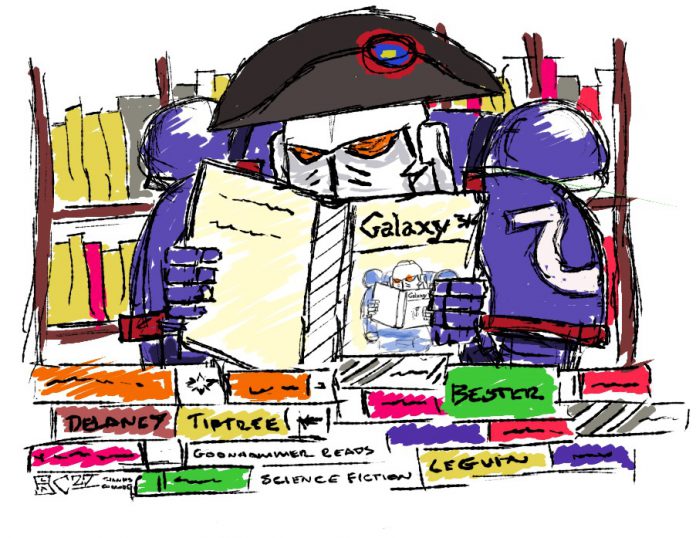


You must be logged in to post a comment.